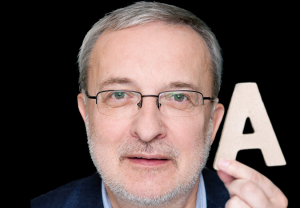
finished
Executive function training in gestalt psychotherapy

principal investigator / project leader
project value: PLN 149,564
funding source: National Science Center
discipline: psychology
location: Warsaw
duration: 2017 2018 2019 2020
According to the World Health Organization, more than 300 million people around the world suffer from various forms depression, which is the leading cause of disability worldwide, and is a major contributor to the overall global burden of disease. Researchers from SWPS University will study whether executive function training could support gestalt therapy for depressive persons.
RESEARCH PROJECT
Executive function training
as a moderator of outcome of gestalt psychotherapy for depressive persons:
a randomized controlled naturalistic study
Research Unit

Grant Amount PLN 149 564
Funding Source

Duration of Research Project: October 2017 – October 2020
According to the World Health Organization, more than 300 million people around the world suffer from various forms of depression, which is the leading cause of disability worldwide, and is a major contributor to the overall global burden of disease. Researchers from SWPS University will study whether executive function training could support gestalt therapy for depressive persons.
Project Objectives
Objectives
The aim of our project is to study and understand the links between cognitive decline related to depression and the psychotherapy process. Although, the psychotherapy proces concentrates on many aspects of human functioning, it often omits changes that happen in cognitive functioning.
In our study we will test a general hypothesis that depression is accompanied not only by working memory and especially executive functioning impairment but also deficits in higher level cognitive processes, like mental model construction and that the training contributes to psychotherapeutic process by holding back or slowing the decline.
Gestalt therapy
Gestalt therapy is an existential/experiential form of psychotherapy that emphasizes personal responsibility, and that focuses upon the individual's experience in the present moment, the therapist–client relationship, the environmental and social contexts of a person's life, and the self-regulating adjustments people make as a result of their overall situation.
We hope that this study will allow us to examine not only the simple impact of the executive function training on treatment of depression, but also its transfer to higher levels of cognitive functioning, which will lead to the development of modern and more effective depression treatments.

Wasielewski, Jarosław
Principal Investigator
First and last name
Jarosław Wasielewski
Jarosław Wasielewskiliteraturoznawczyni
Methodology
Assumptions
We assume that combination of computer based cognitive training targeted at executive functions and classical psychotherapy will produce a synergistic effect manifesting in higher effectiveness of both cognitive training and psychotherapy of depressive symptoms.
Methodology
In our research we will use questionnaires as well as computerized tasks to test cognitive functioning. We will measure general well-being, depressive symptoms, cognitive functioning in everyday life as well as executive functioning and the capacity of working memory.
Practical Application of Results
The project will make it possible to examine not only how executive function training influences the depression treatment, but also how the training transfers to higher cognitive functioning i.e. to the construction of mental models.
The project, which is more detailed and broader than previously reported studies on cognitive change, will make it possible to develop modern and more effective depression treatments, that will help to counteract the rapid spread of this disorder.
Research Team

Sędek, Grzegorz
Research Supervisor
Specialization
Psychologist, specializes in experimantal psychology
First and last name
Grzegorz Sędek
Academic degree or title
Professor
Email
This email address is being protected from spambots. You need JavaScript enabled to view it.
Role in the Faculty
{"funkcja-na-wydziale0":{"Funkcja":"","\u0141\u0105cznik":"","Nazwa w mianowniku":"Faculty of Psychology in Warsaw"}}
Role in the Department
{"funkcja-w-katedrze0":{"Funkcja":"","\u0141\u0105cznik":"","Nazwa w mianowniku":"Department of Cognitive Psychology, Development and Education"}}
Role in the Institute
{"funkcja-w-instytucie0":{"Funkcja":"","\u0141\u0105cznik":"","Nazwa w mianowniku":"Institute of Psychology"}}
Role in the Research Center
{"funkcja-w-centrum0":{"Funkcja":"Head","\u0141\u0105cznik":"of the","Nazwa w mianowniku":"Interdisciplinary Center for Applied Cognitive Studies (ICACS)"}}
Professor Grzegorz SędekPsychologist, specializes in experimantal psychology